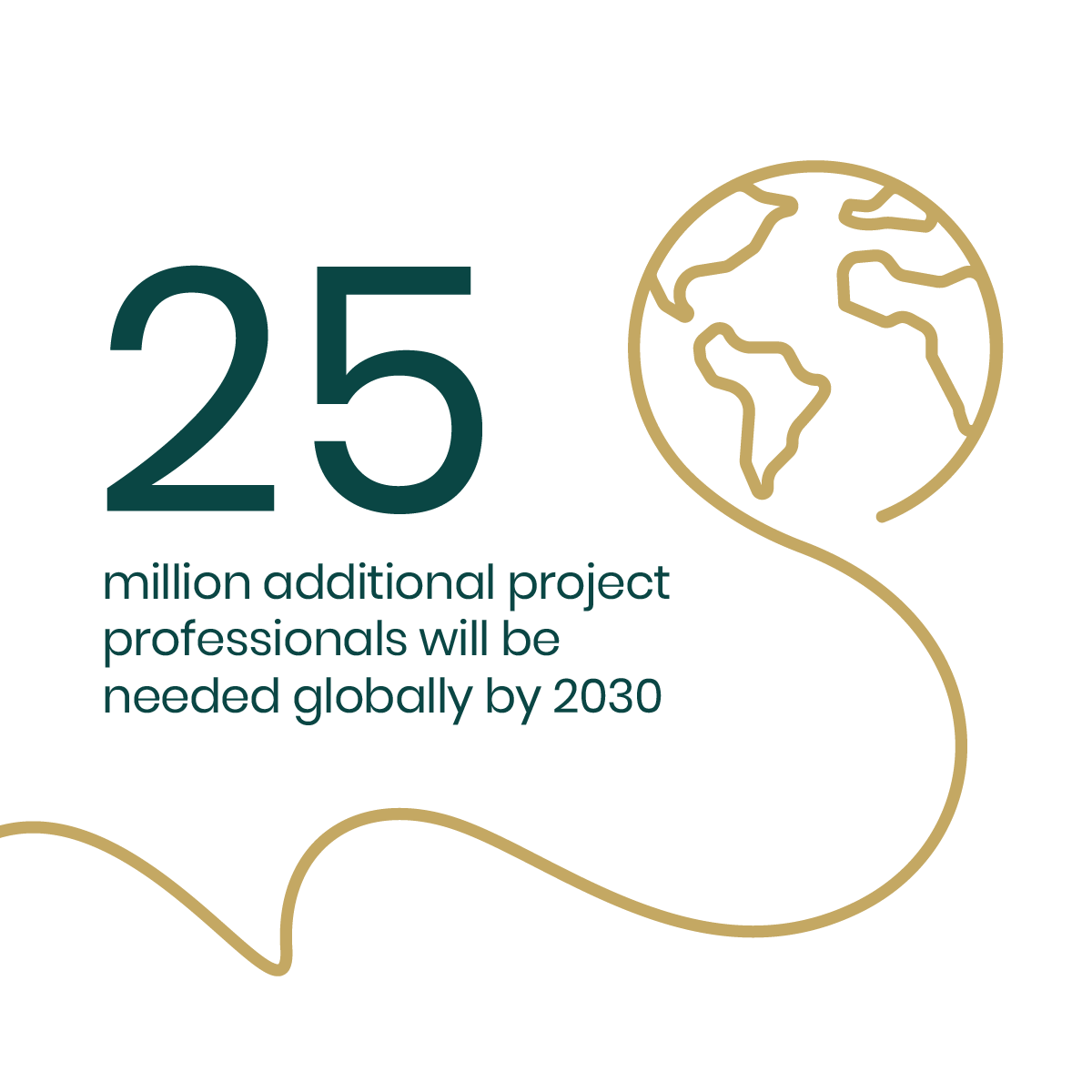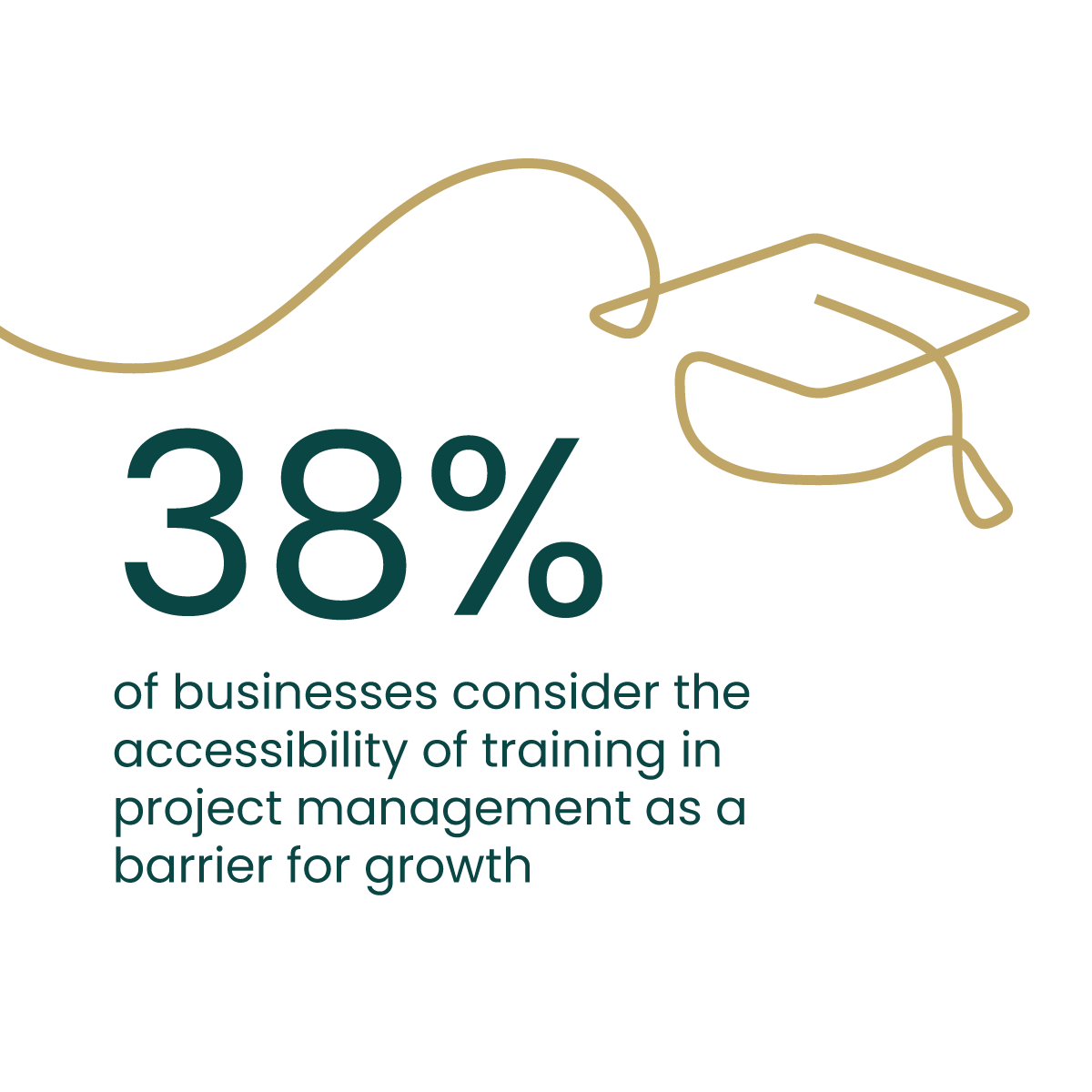We're taking a short break over the festive period and hope you will be too. Our office will be closed from 3pm on 24 December and re-opening on 2 January 2025.
| Without projects, it would be impossible to deal with the challenges facing society today.
Complex issues like pandemics, climate change and poverty can only be tackled effectively if project professionals with the right skills and competencies are able to drive change.
The work they do drives essential change in a range of settings, through delivering large capital projects, enabling organisations to reinvent themselves, releasing new products and services at speed and driving digital transformation.
Source: Project Management Institute, 2021, Talent Gap:Ten-Year Employment Trends, Costs, and Global Implications
The growth of the project management profession is at risk due to potential talent shortages in the industry.


| Attracting talent: addressing perceptions of project management.
The gap between the demand for project management skills and the availability of talent globally continues to increase.
More than half of businesses predict difficulty in attracting new talent as a key barrier to growth, and a similar number consider the attractiveness of salaries relative to other professions as an additional challenge.
Continuing to improve the image and compensation of project professionals will be an important step, alongside reinforcing the strategic impact of the profession to ensure compensation is competitive.
| Bridging the gap: there is a need to enhance the appeal of project management to diversify the talent pipeline.
A PwC survey revealed that project management’s appeal lags behind other career paths like healthcare and law, primarily due to a general lack of awareness that it's a viable career path. Lower awareness was more common among women who were almost twice as likely to not be familiar with project management as a career.
To bridge the talent gap, making the profession more appealing to women could be key. This could include showcasing stories of prominent female leaders and their demonstrated project skills to inspire and attract more women into the field.
APM’s Women in Project Management Interest Network has been actively promoting gender diversity and representing the voice of female project professionals since 1993.
| Prioritising well-being: organisations must continue to safeguard professionals and create supportive working environments.
The project profession is also often associated with high stress and pressure. Previous research from APM showed that project professionals are more likely to report poorer health and well-being compared to the general working population. This is a key concern for businesses in our survey, with 50% citing it as a barrier to further growth.
Organisations must continue to put measures in place to safeguard the well-being of project professionals and ensure a supportive work environment. By fostering cultures that prioritise health and well-being of project professionals, the sector can not only attract but retain project talent.
| Breaking down barriers: enhancing access to project management training is crucial for growth in the wake of AI and innovation.
38% of businesses consider the accessibility of training and education in project management as another growth barrier. This is particularly important as the integration of AI becomes more commonplace and research has shown that project professionals will need to ensure they are upskilled in key areas including digital skills and adaptability.
Organisations should ensure that training for project professionals is kept up to date and helps to develop the most relevant and impactful skills to enhance project management.
Our range of project management qualifications support project professionals in staying relevant at every stage of their career in projects.

"There is a great deal of work on offer for our organisation, but we sometimes struggle to fill vacancies because the pool of engineers and project managers is small. We are working towards aligning our training and development with the APM qualifications so that we can offer standardised opportunities for our project professionals.
Not only does this help with talent retention, as our employees can see a pathway for recognition and progression, but also shows our clients that we have project professionals who are APM members or working towards chartership."
John Adams, Engineering and Projects Director
Cyclife Aquila Nuclear


